-
 Bitcoin
Bitcoin $119100
0.38% -
 Ethereum
Ethereum $4277
0.63% -
 XRP
XRP $3.179
-0.89% -
 Tether USDt
Tether USDt $1.000
0.00% -
 BNB
BNB $807.5
0.48% -
 Solana
Solana $177.2
-3.03% -
 USDC
USDC $0.0000
0.01% -
 Dogecoin
Dogecoin $0.2283
-2.88% -
 TRON
TRON $0.3454
2.02% -
 Cardano
Cardano $0.7887
-2.14% -
 Hyperliquid
Hyperliquid $43.79
-3.38% -
 Chainlink
Chainlink $21.42
-3.21% -
 Stellar
Stellar $0.4373
-1.81% -
 Sui
Sui $3.704
-4.77% -
 Bitcoin Cash
Bitcoin Cash $584.0
2.28% -
 Hedera
Hedera $0.2491
-4.22% -
 Ethena USDe
Ethena USDe $1.001
-0.01% -
 Avalanche
Avalanche $23.31
-2.53% -
 Litecoin
Litecoin $121.5
-2.53% -
 Toncoin
Toncoin $3.393
1.47% -
 UNUS SED LEO
UNUS SED LEO $9.026
-0.03% -
 Shiba Inu
Shiba Inu $0.00001314
-3.84% -
 Uniswap
Uniswap $11.22
2.03% -
 Polkadot
Polkadot $3.916
-3.98% -
 Cronos
Cronos $0.1673
2.46% -
 Dai
Dai $1.000
0.01% -
 Ethena
Ethena $0.7960
2.16% -
 Monero
Monero $274.8
2.22% -
 Bitget Token
Bitget Token $4.427
-0.61% -
 Pepe
Pepe $0.00001153
-5.14%
What causes Gate.io handling fees to be abnormally high?
High Gate.io fees aren't solely due to hidden charges, but rather a combination of factors: blockchain congestion impacting transaction fees, Gate.io's maker/taker and withdrawal fees, fluctuating crypto prices affecting the fee's dollar value, and varying fees across different cryptocurrencies and trading pairs.
Mar 19, 2025 at 04:25 am
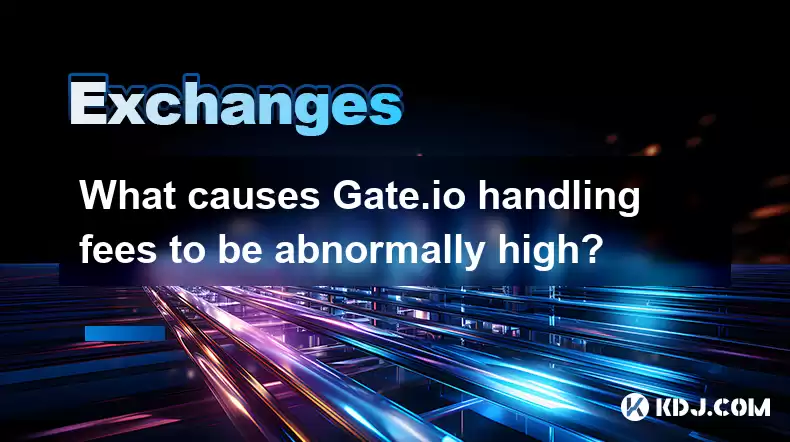
Key Points:
- Gate.io's handling fees are influenced by several factors, not just a single cause.
- Network congestion on the blockchain impacts transaction fees, indirectly affecting Gate.io's charges.
- Gate.io's own fee structure, including maker/taker fees and withdrawal fees, plays a significant role.
- Fluctuations in cryptocurrency prices can indirectly impact the perceived cost of fees.
- Specific trading pairs and cryptocurrencies have varying fee structures.
- Hidden fees or unexpected charges are rarely the cause of high fees on Gate.io.
What Causes Gate.io Handling Fees to Be Abnormally High?
Gate.io, like other cryptocurrency exchanges, charges fees for various services. While the base fees are usually transparent, several factors can lead to what users perceive as abnormally high handling fees. Understanding these factors is crucial for managing costs effectively.
Blockchain Network Congestion: The underlying blockchain network plays a significant role. High network congestion, particularly on blockchains like Ethereum, leads to increased transaction fees (gas fees). These gas fees are passed on to the user, impacting the overall cost of transactions processed through Gate.io. This is not a direct Gate.io fee increase, but an indirect consequence of network conditions.
Gate.io's Fee Structure: Gate.io itself employs a fee structure that includes maker and taker fees for trading. Maker fees are charged when you add liquidity to the order book, while taker fees are applied when you remove liquidity by filling existing orders. These fees vary based on your trading volume and VIP level. Withdrawal fees, charged for moving cryptocurrencies off the exchange, are another contributing factor to the overall cost.
Fluctuating Cryptocurrency Prices: The value of the cryptocurrency you're trading significantly influences the perceived cost of fees. A small percentage fee on a highly valued cryptocurrency will translate to a larger absolute cost compared to the same percentage fee on a less valuable coin. This isn't a fee increase, but a change in the dollar value of the fee.
Trading Pair and Cryptocurrency Specifics: The fees aren't uniform across all trading pairs and cryptocurrencies. Some pairs or tokens might have higher fees due to their specific blockchain characteristics or lower trading volume. Before engaging in transactions, always check the specific fees associated with the pair you're using.
Hidden Fees and Unexpected Charges: Contrary to popular misconception, Gate.io rarely employs hidden or unexpected fees. The exchange is generally transparent about its fee structure. If you encounter unusually high charges, double-check the transaction details and the fee breakdown provided by Gate.io to identify the source.
Understanding Gate.io's Fee Breakdown:
To avoid surprises, understanding the components of Gate.io's fees is vital. These typically include:
- Trading Fees (Maker/Taker): These are the primary fees for buying and selling cryptocurrencies. They depend on your trading volume and VIP level.
- Withdrawal Fees: These fees are charged for transferring cryptocurrencies from your Gate.io account to an external wallet. These fees vary based on the cryptocurrency being withdrawn.
- Deposit Fees: While less common, some cryptocurrencies might have deposit fees. Check the details before depositing.
Minimizing Gate.io Fees:
Several strategies can help minimize your fees on Gate.io:
- High Trading Volume: Achieving higher trading volume on the exchange can qualify you for a lower VIP tier with reduced fees.
- Strategic Trading: By using limit orders (maker orders) instead of market orders (taker orders), you can potentially save on trading fees.
- Choosing Less Congested Blockchains: When withdrawing or depositing, selecting cryptocurrencies on less congested networks can help lower transaction fees.
- Batch Withdrawals: If feasible, combining multiple withdrawals into a single transaction can reduce the overall cost.
Common Questions and Answers:
Q: Why are my Gate.io fees higher than expected?
A: Several factors can contribute to higher-than-expected fees, including blockchain network congestion, your trading volume and VIP level, the specific cryptocurrency and trading pair, and withdrawal fees. Carefully review the transaction details for a complete breakdown.
Q: Are there any hidden fees on Gate.io?
A: No, Gate.io is generally transparent about its fee structure. Any unusually high fees are typically due to the factors mentioned above, not hidden charges.
Q: How can I reduce my Gate.io fees?
A: You can minimize fees by increasing your trading volume to reach a lower VIP tier, using limit orders, choosing less congested blockchains, and combining withdrawals where possible.
Q: Do all cryptocurrencies on Gate.io have the same fees?
A: No, fees vary depending on the cryptocurrency, the trading pair, and network congestion. Check the fee details for each specific cryptocurrency and trading pair before engaging in a transaction.
Q: What happens if the blockchain network is extremely congested?
A: Extreme network congestion can result in significantly higher transaction fees, which will indirectly increase the overall cost of your Gate.io transactions. This is not a Gate.io-specific issue but a consequence of network conditions.
Disclaimer:info@kdj.com
The information provided is not trading advice. kdj.com does not assume any responsibility for any investments made based on the information provided in this article. Cryptocurrencies are highly volatile and it is highly recommended that you invest with caution after thorough research!
If you believe that the content used on this website infringes your copyright, please contact us immediately (info@kdj.com) and we will delete it promptly.
- INJ ETF, Crypto Future, and Uncertainty: Navigating the Murky Waters
- 2025-08-12 02:50:12
- Cold Wallet, Litecoin, HBAR Outlook: Navigating Crypto Trends in 2024
- 2025-08-12 03:30:12
- Dogecoin's Wild Ride: EMAs, Support Levels, and What's Next for the Meme Coin
- 2025-08-12 04:10:13
- Layer Brett, Solana, and Staking Rewards: Chasing the Next Crypto Moonshot
- 2025-08-12 04:10:13
- Ruvi AI: The Presale Gem Poised for 100x Gains?
- 2025-08-12 02:50:12
- Bitcoin, Solana, MAGACOIN FINANCE: Navigating the 2025 Crypto Landscape
- 2025-08-12 00:30:13
Related knowledge
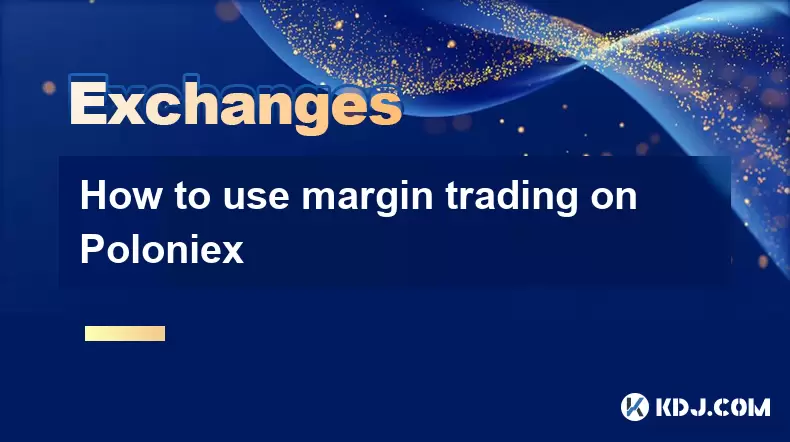
How to use margin trading on Poloniex
Aug 08,2025 at 09:50am
Understanding Margin Trading on Poloniex
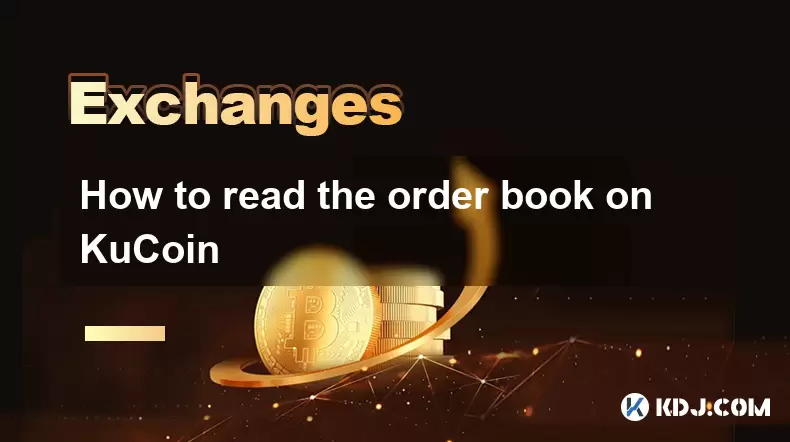
How to read the order book on KuCoin
Aug 10,2025 at 03:21pm
Understanding the Order Book Interface on KuCoinWhen accessing the order book on KuCoin, users are presented with a real-time display of buy and sell ...
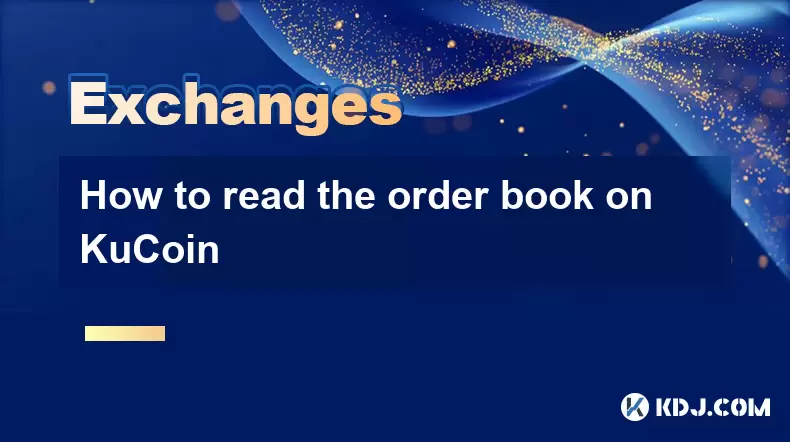
How to read the order book on KuCoin
Aug 12,2025 at 02:28am
Understanding the Basics of Staking in CryptocurrencyStaking is a fundamental concept in the world of blockchain and cryptocurrencies, particularly wi...
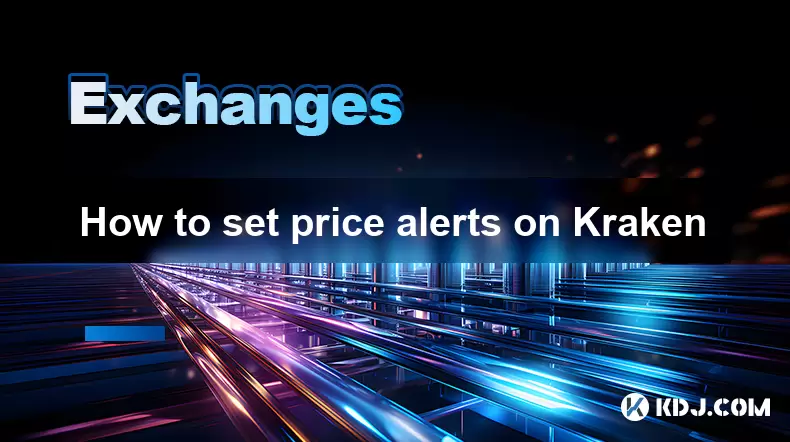
How to set price alerts on Kraken
Aug 11,2025 at 08:49pm
Understanding Price Alerts on KrakenPrice alerts on Kraken are tools that allow traders to monitor specific cryptocurrency pairs for price movements. ...
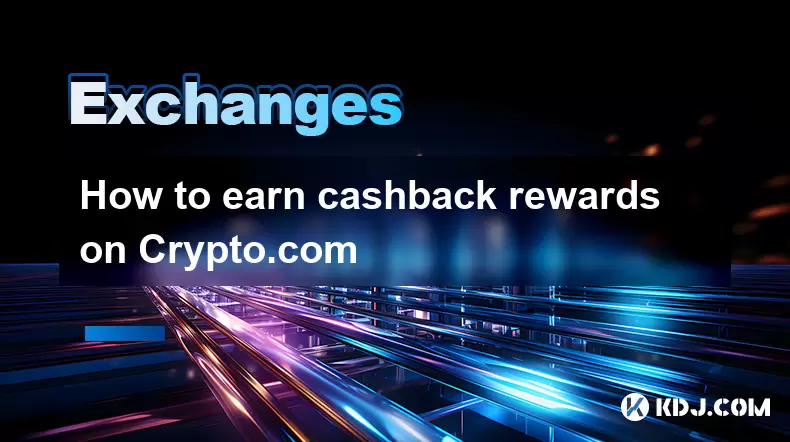
How to earn cashback rewards on Crypto.com
Aug 12,2025 at 02:08am
Understanding Cashback Rewards on Crypto.comCashback rewards on Crypto.com are a feature designed to incentivize users to spend using their Crypto.com...
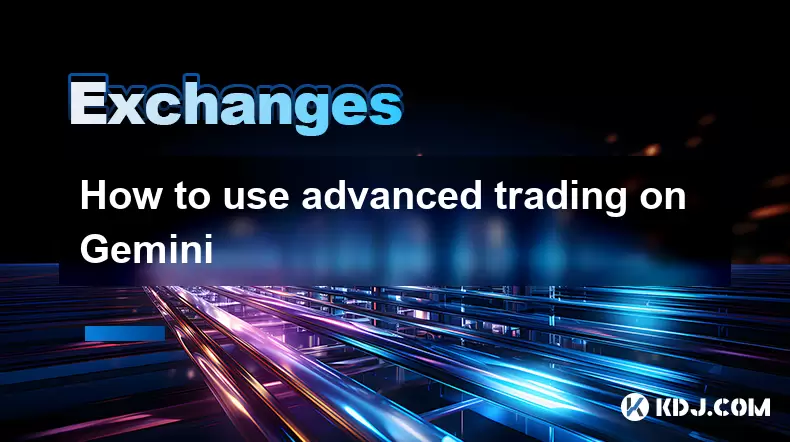
How to use advanced trading on Gemini
Aug 08,2025 at 04:07am
Understanding Advanced Trading on GeminiAdvanced trading on Gemini refers to a suite of tools and order types designed for experienced traders who wan...

How to use margin trading on Poloniex
Aug 08,2025 at 09:50am
Understanding Margin Trading on Poloniex

How to read the order book on KuCoin
Aug 10,2025 at 03:21pm
Understanding the Order Book Interface on KuCoinWhen accessing the order book on KuCoin, users are presented with a real-time display of buy and sell ...

How to read the order book on KuCoin
Aug 12,2025 at 02:28am
Understanding the Basics of Staking in CryptocurrencyStaking is a fundamental concept in the world of blockchain and cryptocurrencies, particularly wi...

How to set price alerts on Kraken
Aug 11,2025 at 08:49pm
Understanding Price Alerts on KrakenPrice alerts on Kraken are tools that allow traders to monitor specific cryptocurrency pairs for price movements. ...

How to earn cashback rewards on Crypto.com
Aug 12,2025 at 02:08am
Understanding Cashback Rewards on Crypto.comCashback rewards on Crypto.com are a feature designed to incentivize users to spend using their Crypto.com...

How to use advanced trading on Gemini
Aug 08,2025 at 04:07am
Understanding Advanced Trading on GeminiAdvanced trading on Gemini refers to a suite of tools and order types designed for experienced traders who wan...
See all articles

























































































